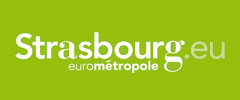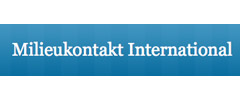30 subgrantee organizations from Armenia, Georgia, Moldova and Ukraine joined first CLEEN trainings in Georgia and Ukraine
Two NGO trainings took place in the frame of the CLEEN project, which aims as overall objective to build regional partnerships of civil society organizations (CSOs) in the 4 countries with a focus on energy efficiency
01.08.2015 |

Staff members of 30 young organizations were trained in July as part of the Civil society Local Energy Efficiency Network (CLEEN) project.
Participans came from four target countries and were selected after a call for application process over the last several months.
CLEEN (Civil society Local Energy Efficiency Network) is a 3-year-EU-project with the geographical focus of Republic of Armenia, Georgia, Republic of Moldova and Ukraine.
The project CLEEN aims as overall objective to build a sectorial regional partnership of civil society organizations (CSOs) in the 4 countries to strengthen CSO capacities for monitoring of local policies and budgets, cooperation with local authorities and stakeholders, policy dialogues and awareness raising on energy policies, with a focus on energy efficiency and cost savings and increased accountability of local and national authorities on this issue.
The aim of the trainings was to get a deep and common understanding of the CLEEN project and to learn how to conduct projects and manage an organization. Knowing each other, cooperating in working groups and getting familiar with project partners (Gutta Club/Moldova, Ecoclub/Ukraine, SCDA (Social Community Development Agency)/Georgia, the Armenian consultant Hrant Sargsyan and WECF) was another important aspect of the training. All project partners are very experienced in empowering the civil society and in particular in energy efficiency and energy saving activities and could share their experiences.
The wide range of subjects of the 5 days trainings included NGO-expertise and energy information: NGO management, strategic planning of an NGO, theory of social changes, gender relevant information, stakeholder mapping, baseline assessment, energy situation in the countries, advocacy, communication, accounting, and fundraising.
The working atmosphere in both trainings was very positive and constructive and the participants of the mentoring programme had a lot of possibilities to work together in different working and exercise groups. The different experiences of the organizations, in empowering civil society, advocacy, communication or in energy topics could be shared within the groups.
All participants have to do homework (preparing of baseline studies and stakeholder mapping) to be conducted before they will meet again in next trainings in Moldova and Armenia, where the focus will be on energy efficiency and energy savings.
Please contact us for more information.
A Warm Home for Households in Ukraine: Knowledge for a Sustainable Future in Eastern Europe. WECF and Ecoclub... http://t.co/Ps16OZgcm8
— WECF_INTERNATIONAL (@WECF_INT) August 7, 2015Related News
Rural Georgians look to the sun to ease energy poverty
Video (6 min): by Deutsche Welle & Maria Lesser on our project in Georgia
04.06.2018
The CLEEN Project and Its Successes
The CLEEN Project, driven by WECF and 3 other local co-applicant organizations, strives to implement energy-efficient policies into local communities in 4 eastern European countries which are Ukraine, Moldova, Georgia and Armenia
13.03.2018
Better energy efficiency in Moldova thanks to insulation of public buildings
Local authorities and WECF partner OA Colaborare cooperate to provide public buildings with proper insulation
18.12.2017
WECF Event in Brussels: “CLEEN Energy has changed our lives”
WECF organised Wednesday June 21 event to highlight Project CLEEN during EU Sustainable Energy Week “CLEEN energy has changed our lives”.
22.06.2017
Who will stop the destruction of trees in Kamiansk (Dniprodzerzhynsk)?
Ukrainian partner Voice of Nature protects the environment in the Ukrainian city of Kamiansk
01.03.2017




































